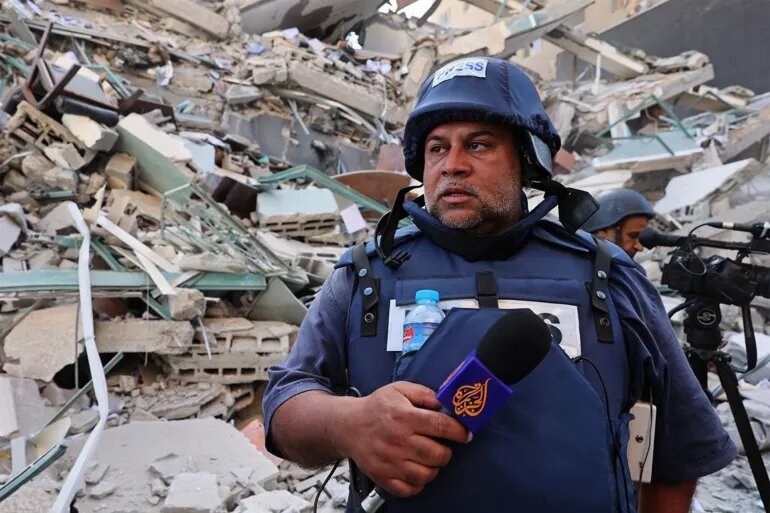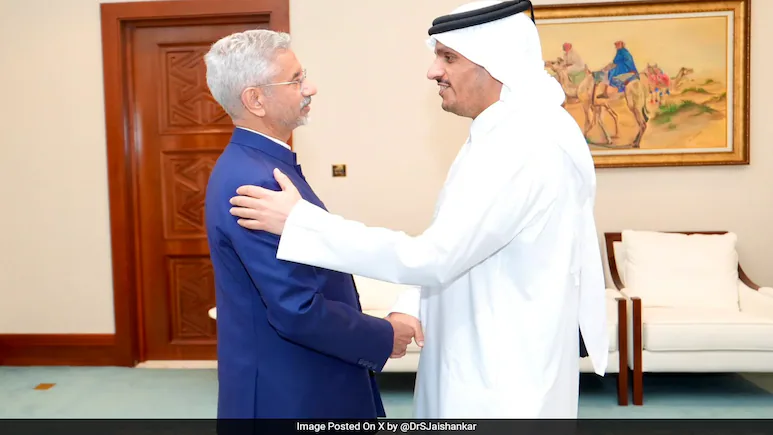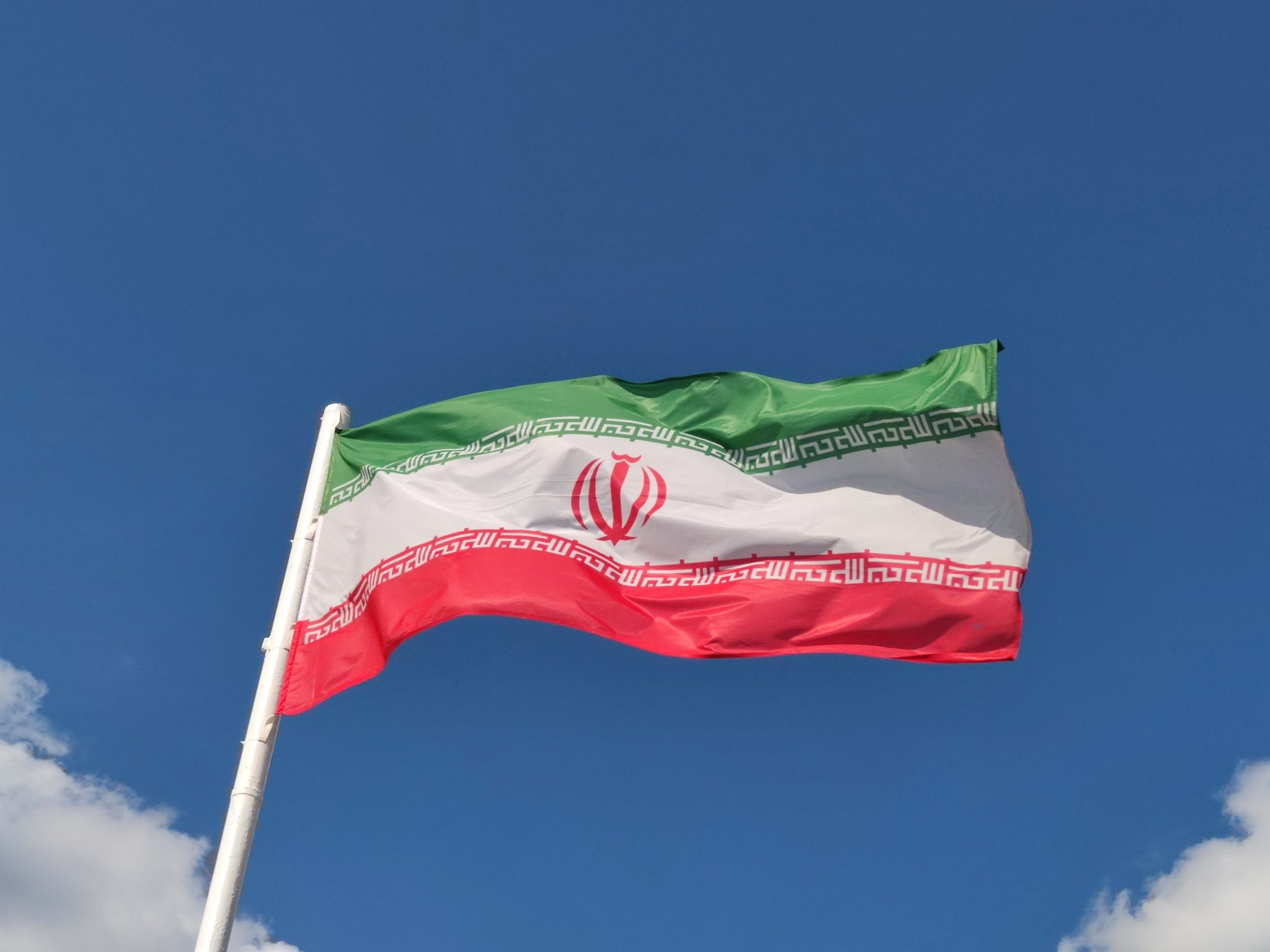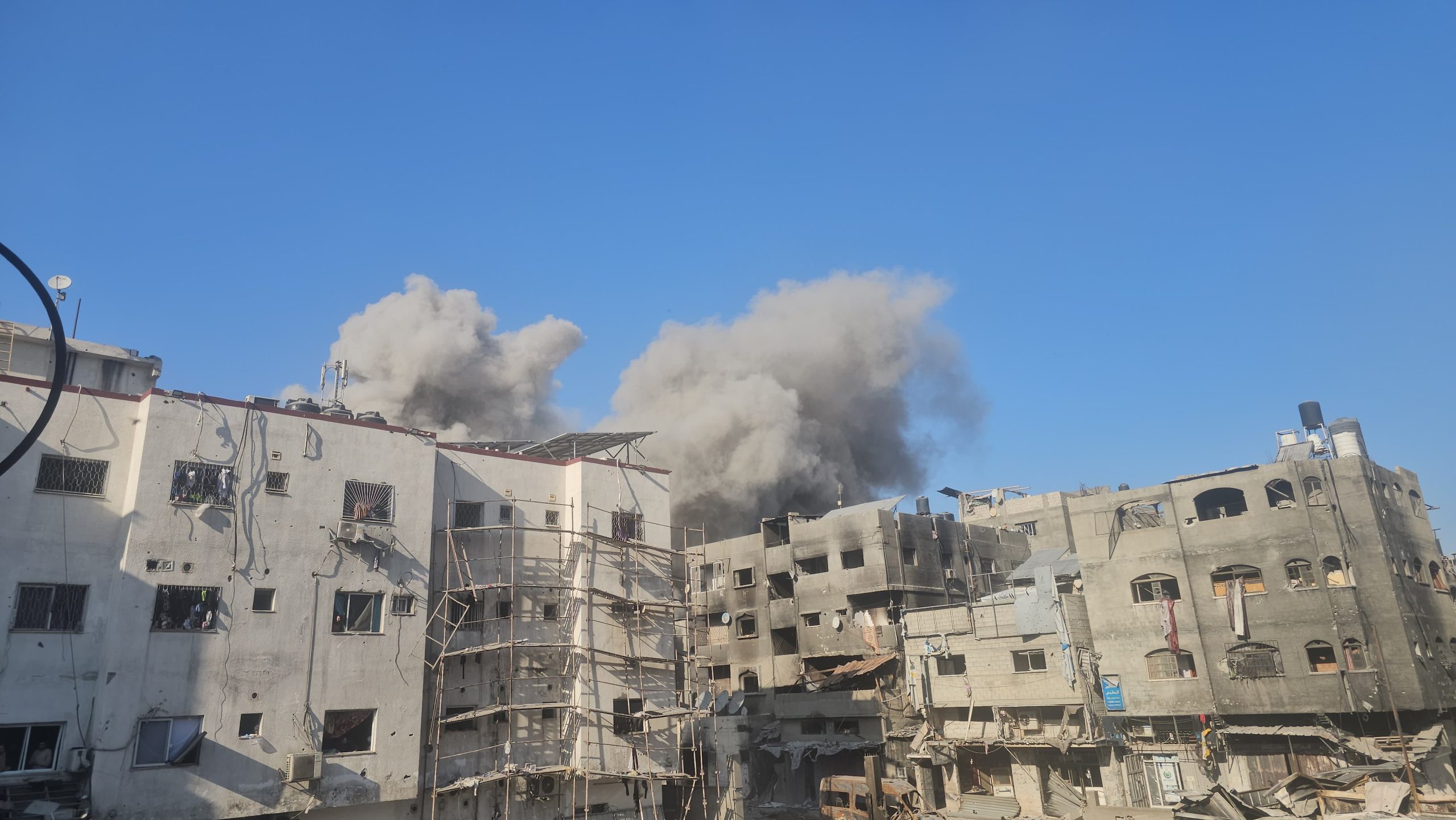Israel has killed at least 117 Palestinian journalists in Gaza since October 7.
Al Jazeera’s bureau chief in Gaza, Wael Dahdouh, has called on U.S. President Joe Biden “to look at what’s happening” in the besieged enclave in a televised interview with MSNBC on Saturday.
“I demand from the American president, I advise the president, to look at what’s happening, to listen to the people, ordinary people, who are paying the cost. They have every right to secure their rights as human beings, as partners in humanity,” Dahdouh said in the live broadcast.
Dahdouh’s remarks came on the 99th day of the Israeli genocidal war on Gaza, where Israel killed at least 23,843 Palestinians and wounded more than 60,317 others.
The U.S. has militarily backed Israel since the beginning of the war while rejecting a ceasefire.
The renowned Al Jazeera journalist’s family members were among the Palestinians killed by Israel.
On October 25, Israel killed Dahdouh’s wife, 15-year-old son, seven-year-old daughter and infant grandson in a strike in the south, despite Israel announcing the area to be a safe zone before the attack.
Israel then killed Dahdouh’s eldest son, Hamza, on January 7 when it targeted his vehicle in Gaza.
“[Biden] should listen to both sides of the narrative, not just one side, it’s the right of the Palestinian people, it’s my right as a father who is in pain, who paid with the blood of his family to speak about how I feel,” Dahdouh said.
“I paid a very high cost for the weapons which targeted where my family was and destroyed it, levelling it to the ground without prior warning, I guess my family and many other families. This is a huge injustice,” Dahdouh added.
The U.S. Secretary of State Antony Blinken said he was “deeply, deeply sorry” over the “loss” of Hamza at a press conference in Doha last week.
Blinken’s remarks came in a joint press conference in Doha with Qatar’s Prime Minister and Foreign Minister Sheikh Mohammed bin Abdulrahman Al-Thani.
“I am deeply, deeply sorry for the almost unimaginable loss suffered by your colleague, Wael Dahdouh. I am a parent myself, I can’t begin to imagine the horror that he has experienced, not once, but now twice,” Blinken said, without condemning the killing.
The occupation forces attempted to justify the killing by claiming it “identified and struck a terrorist who operated an aircraft in a way that put IDF forces at risk”.
It then backtracked on its remarks when Israeli military spokesman Daniel Hagari told NBC News that “every journalist that dies, it’s unfortunate.”
Al Jazeera dismissed Israel’s claims as “false and misleading” in a statement it sent to the Middle East Eye on Saturday. The Qatar-based network said it was “considerably surprised” by the accusation.
“[Hamza] like so many journalists before him, was killed simply for doing his job and for shining a light on events that the Israeli army would rather stay in the dark and hidden from scrutiny,” the statement added.
Dahdouh had also survived a missile strike on December 15 in Khan Younis, where Al Jazeera’s cameraman, Samer Abu Daqqa, succumbed to his injuries after being left to bleed for six hours.
Israeli forces prevented medics from reaching him with nonstop shelling and the ambulances had to receive prior approval to reach Abu Daqqa, according to Al Jazeera.
Dahdouh’s arm was injured by a shrapnel from the Israeli air strike and Palestinians managed to get him to the Nasser Hospital in Gaza, where he underwent surgery in his arm.
Al Jazeera referred the case to the International Criminal Court, the network announced in a statement on December 16.
The targeting of Dahdouh and his family comes under Israel’s ongoing targeting of the press covering the genocide in Gaza. Israel has killed at least 117 Palestinian journalists in Gaza since October 7, according to the Strip’s authorities.
Other primary targets throughout the genocide include medics working around the clock to attend to injured Palestinians. Israel killed at least 295 healthcare professionals and injured 342 others, according to figures by Euro-Med on Saturday.
The Israeli genocide, coupled with the complete siege on Gaza, put most hospitals and health centres out of service. A total of 15 out of Gaza’s 36 hospitals are partially functional, according to the United Nations.







